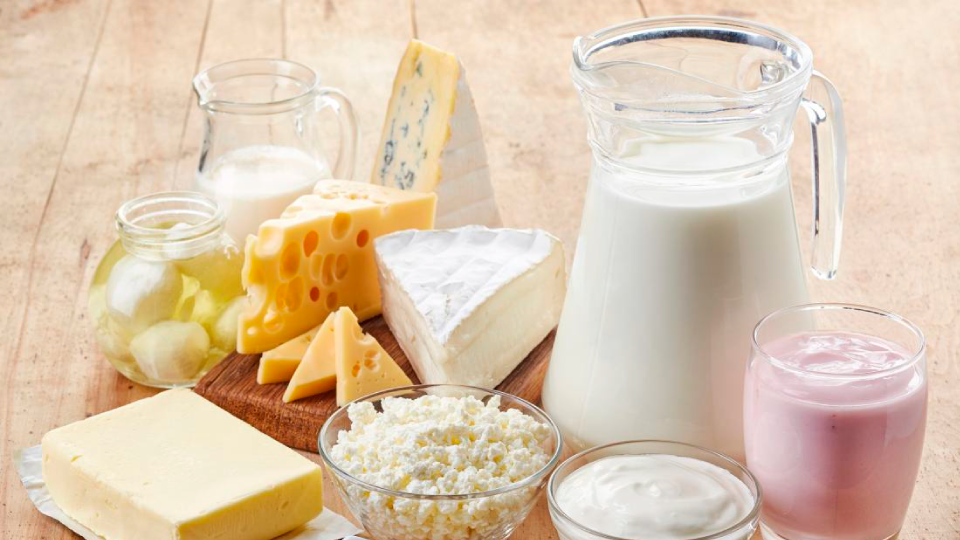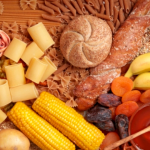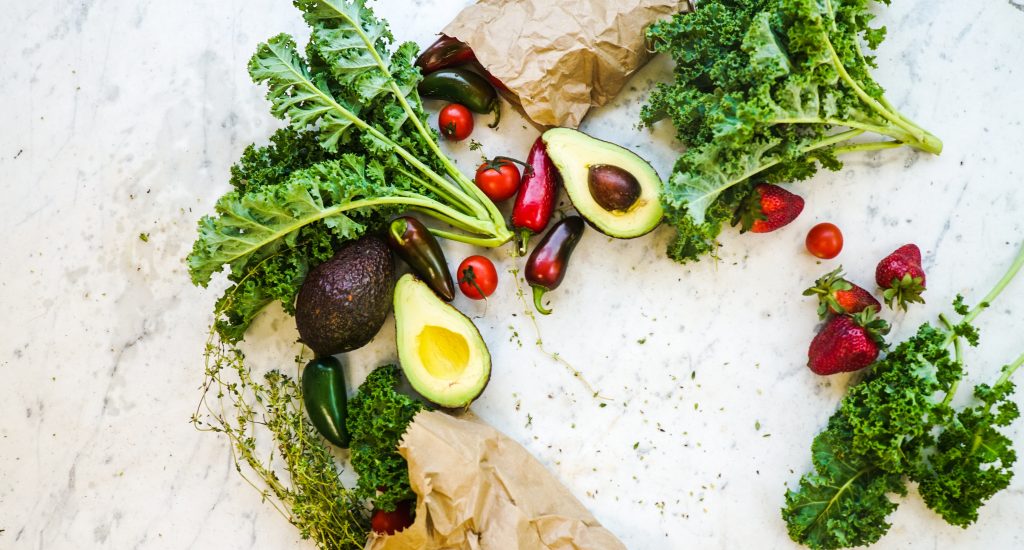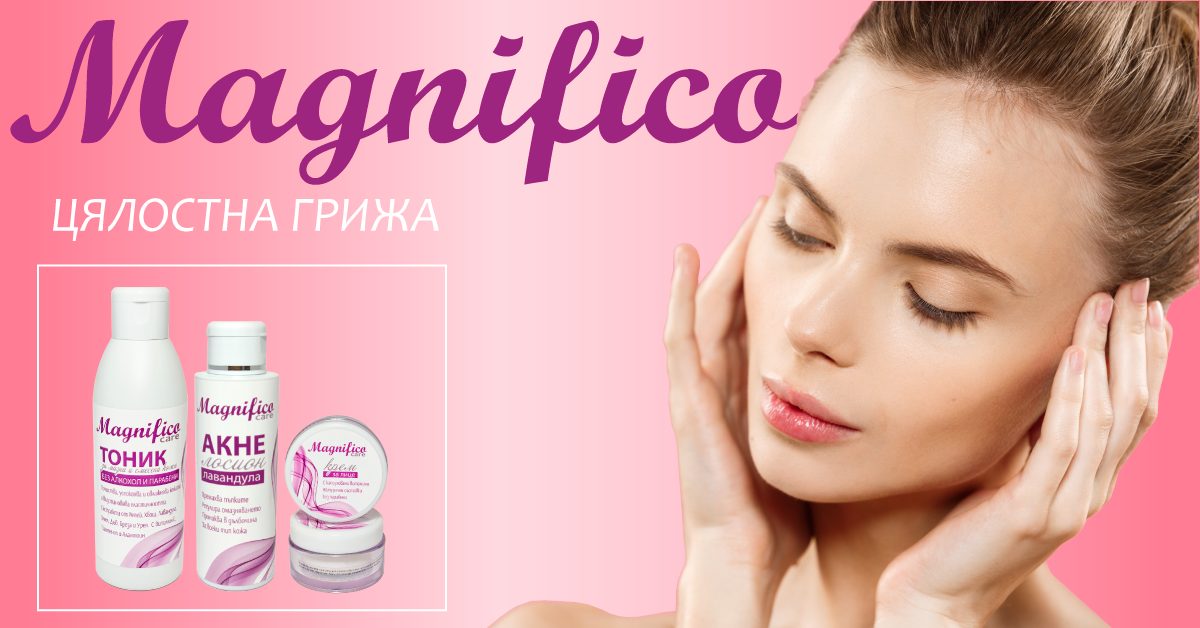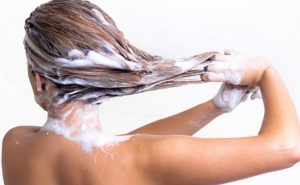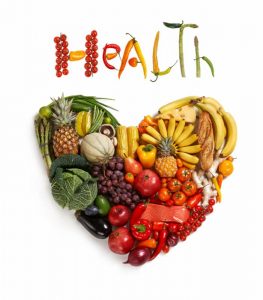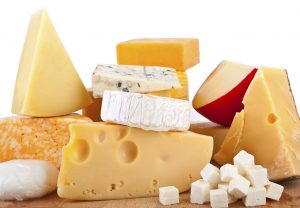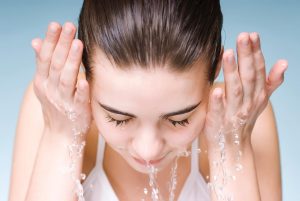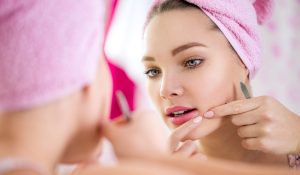Effect of diet on acne
There are differing opinions among experts regarding the relationship between diet and acne. Some believe that diet does not play a significant role in the appearance of acne, but the majority of studies prove the exact opposite.
Acne is a result of the production of a large amount of sebum and clogging of the openings of the sebaceous glands with dead skin and bacteria. This leads to inflammation and the appearance of comedones, pus-filled pimples, and in some people even more severe forms of acne such as papules, pustules and nodules. You can read more about the essence of the skin disease and the factors predisposing to its appearance in the article What is acne and how to take care of it.
During puberty, the body produces more of a hormone called insulin-like growth factor IGF-1, or Somatomedin C. According to some studies, it is this hormone that increases sebum production and worsens acne symptoms.
Certain foods contribute to increasing the amount of IGF-1, and avoiding them (or at least significantly reducing them) can improve the condition of the skin and reduce the appearance of pimples and acne.
Foods that cause an increase in IGF-1 hormone levels are:
DAIRY PRODUCTS
EAT HIGH GI and GT
Dairy products
Dairy consumption, according to numerous studies, is one of the most common food culprits for problematic skin and acne. Dairy products contain the protein casein, which causes the accumulation of mucus in the body. Mucus is a necessary component protecting the membranes in the human body from toxins and other irritants. But when it is in large quantities, for example with excessive consumption of cow’s milk products, mucus can have the exact opposite effect – unlocking a number of diseases affecting the lymphatic system, reproductive organs, respiratory tract, digestive tract, excretory system and connective tissue. The reason for this is that the body tries to get the mucus out of the body in any way possible – for example, through the nose (runny nose and congestion), the respiratory tract (cough) and the skin (acne and pimples).
Dairy products that could worsen acne symptoms include fresh milk, cheese, ice cream and yogurt. But avoiding them does not always lead to a complete elimination of the skin problem. This is because acne manifests itself in different ways and degrees in different people, and food is not the only factor that affects its appearance. A good solution is to eliminate or reduce your intake of dairy foods to see if it will have a positive effect on your skin. Keep in mind that milk is also found in other products in the form of whey powder, milk powder, milk chocolate, and more, so it’s a good idea to always read the labels. You can try different alternatives to dairy products – soy yogurt, almond and coconut milk or tofu cheese for example.
Foods with a high glycemic index (GI) and high glycemic load (GT)
The glycemic index shows how quickly a carbohydrate food is broken down in the body into glucose (blood sugar) and increases its level, respectively the level of insulin. Foods with a low GI cause a moderate increase in blood sugar, and those with a high GI – increase it sharply.
The glycemic load classifies foods in terms of their impact on blood sugar and takes into account not only the carbohydrate content, but also the amount of fiber in individual foods. That is why it is considered the most accurate and reliable meter. Foods high in fiber have a lower glycemic index.
If you struggle with problem skin and acne, it is good to replace high GI foods (eg white sugar, white bread, sweet and salty packaged treats, chocolate, soft drinks, white rice, potatoes, alcohol in excessive amounts) with foods with medium and even low GI like beans, lentils, whole grain bread, soy, walnuts and apples.
Image source: http://www.okeybg.com
Learn more about acne-causing foods in the article “10 Foods That Cause Acne.” But remember, in addition to eating wholesome and healthy, it is important to treat acne-prone skin with specialized cosmetics. MAGNISKIN Solutions Sensitive Skin Toner precisely cleanses, soothes, tones, moisturizes and prepares the skin for the application of MAGNISKIN Solutions Anti-Acne Lotion, which reduces the sebum secretion of the skin, making it clean, fresh and supple, and really removes unwanted pimples, whether they are on the face, hands, back, or other sensitive area.
Acne is a skin disease that manifests itself when the secretion of sebum is disturbed. Also called acne vulgaris. It affects about 80% of people at various stages of their lives. The majority of acneic skin sufferers only experience pimples during puberty. In some, albeit rare, cases, it is possible for it to appear for the first time after the age of 25, largely due to an unhealthy lifestyle. In most cases, the problem of unpleasant pimples disappears after the teenage years, leaving traces and even scars such as bumps and red and brown spots on the skin. For quite a few people, however, the struggle with acne continues even after the age of 30.
Sufferers of sensitive, acne-prone skin complain of oily and shiny skin where the sebaceous glands produce a large amount of sebum. Acne symptoms manifest in several ways. Comedones (whiteheads and blackheads) and/or pus-filled pimples form, caused by blockage of sebaceous gland openings and increased bacterial growth. This, in turn, can lead to a severe and painful inflammatory process – the appearance of papules, pustules and nodular nodes. Acne most often affects the face, neck, shoulders, chest and back. This applies with particular force to people who train hard, due to frequent sweating, and hence oiliness of the skin. You can read more about back acne and ways to protect yourself from it in the article “Back acne – 13 tips to protect yourself”.
Acne comes in several forms:
- Mild – comedonal acne;
- Moderate – papulopustular acne;
- Severe – conglobatic acne.
- The most common factors for the appearance of acne
hormonal, genetic, stress and anxiety, smoking, unhealthy diet, certain medications and last but not least poor and even improper skin care
HOW TO GET RID OF PUMPS
- Strive for a healthy lifestyle.
Build a healthy diet, exercise, detoxify your body, give yourself the necessary rest and adequate sleep. Not only will your skin thank you, but you’ll feel more energetic, happy and positive. A positive change in your lifestyle will surely lead to a positive change in the health of your skin.
- Dry your skin well!
This is especially true for active sportsmen. When you sweat profusely, the sweat mixes with the oils on the skin, bacteria spreads more quickly and easily, and pores become clogged. This can greatly stimulate the appearance of acne and worsen the overall condition of the skin. Therefore, it is no surprise why frequent gym goers regularly complain of severe acne and pimples on their backs and arms.
- Use sunscreen even in gloomy weather.
Skin with acne is extremely sensitive to UV rays, which is why it’s important to use appropriate sunscreens. If you don’t have sunscreen available, we recommend that you at least protect your skin with a moisturizer. For example, Face cream with encapsulated vitamins MAGNISKIN Solutions moisturizes, rejuvenates and provides maximum protection from adverse external influences, including harmful ultraviolet rays.
- Make sure you get enough vitamins and minerals.
The intake of Omega 3 fatty acids, which are rich in vitamins and minerals, through foods such as walnuts, avocados, flaxseeds or dietary supplements, regulates the production of sebum, which can affect sebum secretion and reduce the oiliness of your skin.
- Take good care of your skin.
Using the right high-quality products to clean and nourish the skin is essential for a good appearance. Specialized anti-acne cosmetics such as the MAGNISKIN Solutions Lotion, Tonic and Cream series are specially developed to reduce sebum secretion and destroy pimples. Such products help regenerate the skin and restore its vitality and radiance, but most of all, they increase self-confidence and put a smile back on your face.Remember – to have clear acne-free skin – patience and persistence are needed. Read more about Clear Skin Secrets and make sure that even the smallest positive changes in your lifestyle will lead to great results!
Pimples don’t just appear on the face. Pimples can also appear on the back, chest and other parts of the body. If you have acne on your back, you should certainly approach it with as much care and caution as if you have pimples on your face. Solving the problem begins with the treatment of the skin of the neck, shoulders. Back acne is caused by the same factors that cause facial acne ie. hormones, germs and sweat. There is definitely a genetic component as well. Some people are genetically programmed to get back acne and it is more severe in men than in women.
Your back releases an oil on the skin called sebum, which traps bacteria and can clog hair follicles. If these hair follicles become blocked and infected, red, swollen and sometimes painful lumps appear. This lump is a pimple. If the bacteria spread and the hair follicles become infected, a breakout occurs.
The back is one of the most common places for acne breakouts. Although acne is not a serious health problem, it is one of the most common skin conditions worldwide. If not treated properly, acne can cause permanent discomfort and lasting memories, such as scarring.
Tip 1
If there is a problem, a light and well-balanced diet will improve the condition and prevent damage to the skin in the breakout process. Hygiene is extremely important, such as showering after work, and avoiding skin care products with strong fragrances and irritating ingredients.
Tip 2
Moisturize with medicated lotion. Skin is an organ on your body. Not figuratively, but literally. And like other organs in the body, your skin also needs water and other nutrients to look and feel good. Apply lotion to your back every time you wash it (daily). If you prefer a leave-in lotion, feel free to include one in your skin care routine. There are many leave-in skin care products. If you’re having trouble choosing the right back skin care product, you can check out MAGNISKIN Solutions Anti-Acne Lotion. With its specially developed formula for men, it guarantees an immediate effect on acne.
Tip 3
Sweat is truly your enemy in the fight against acne. In most cases, pimples are caused by clogged pores. Take a shower immediately after exercise with lukewarm or warm water. Avoid dousing areas with pimples with hot water, as this can irritate hair follicles, burn the skin and make acne worse. Use a pH-balancing cleanser to remove excess oils, debris, and bacteria from the skin’s surface before they clog pores and cause acne. When showering, don’t let conditioner or shampoo run down your back. The ingredients in these products can contribute to clogged pores.
Tip 4
Never leave sweaty clothes, loose fabrics or the like covering and “blocking” the surface (like a backpack) as these are some of the main causes of acne breakouts or worsening.
Tip 5
Keep your hair tied. Long hair can further pollute the skin on your back, causing acne breakouts. Wash your hair regularly and tie it up in a bun or high ponytail during sports.
Tip 6
Don’t forget to exfoliate. Use a mild exfoliating scrub with ingredients like salicylic acid to remove residual dirt and oils from your skin. This can help reduce the amount of dead skin that can clog pores. Unlike the face, the pores on the back are much larger and significantly more prone to clogging. For this reason, they can tolerate an exfoliating cleanser two to three times a week. This will improve cell turnover and help keep pores clear and free.
Tip 7
Small changes in your daily routine can have a huge impact on the health of your skin. As an example, we can look at your exercise habits. They could irritate the acne. For example, tight clothing can trap dirt and sweat and “rub” it into the pores. Exercising without a t-shirt or tank top on exercise equipment or on a dirty floor can also cause problems. Wear loose fitting clothing that allows your skin to breathe and helps sweat evaporate.
Tip 8
Choose cosmetic products with caution. Shampoo, conditioner, hair masks, and styling products contain a variety of comedogenic ingredients, including sodium lauryl sulfate and sodium laureth sulfate. These ingredients, along with sunscreens and skin care products containing lanolin, petroleum products, and silicone derivatives, can cause skin irritation and breakouts.
Tip 9
Try tea tree oil. Tea tree oil is produced from the leaves of a tree in Australia. It has been used by Australians for years to treat various skin problems. Today, you can find many lotions, cleansers and creams that contain this ingredient.
Tip 10
Summer can be both good and bad for your skin. Hot and humid conditions create the perfect breeding grounds for acne, but the sun at the beach can help. For example, dermatologists use ultraviolet light to treat acne. However, this does not mean that there is no need to use sunscreen. Choose sunscreen carefully. Protecting your skin from the harmful sun is important, especially if you expose your back to direct sunlight. Avoid oily sunscreens because they can contribute to clogging of pores. Make sure you choose a product that is fat-free.
Tip 11
Wear breathable, clean and loose clothing. Review the detergents you use to wash. Make sure they are not flavored. If necessary, replace them. Use a gentle detergent with minimal or no fragrance, especially if you have sensitive skin. You might even try a detergent designed for babies. Acne can be caused or worsened by products that are too strong or heavily scented. Fragrances can cause irritation and dryness on the surface of the skin, causing inflammation.
Tip 12
Make sure any material that touches your back is clean and, if possible, made from natural fibers like cotton.
Tip 13
Have you ever heard the expression “You are what you eat”? An unhealthy diet can affect our body in different ways. If you are prone to acne, certain foods can act as an activator. Research shows that foods that are high on the glycemic index can make acne worse. Such foods are white bread, white pasta and rice, as well as yellow potatoes. To reduce acne, you can try eating healthy, including vegetables, fruits, clean proteins and whole grains in your diet. If necessary, you can also include some medications.
With a few changes in your lifestyle and the help of some products, you can get rid of those pesky pimples. Pimples can be a challenge to treat, no matter where on the body they are. Unfortunately, the formation of pimples is not limited to the teenage years. Acne can appear at any age and for a variety of reasons. Pimples can appear on any part of your body, including your back. If you suffer from this terrible problem that usually leads to low self-esteem, you can also read the article “10 foods that contribute to the formation of acne or pimples”. She will give you guidance on how to change your diet to support the remedies you use to treat acne.
When it comes to acne, the debate in the scientific community revolves around whether diet plays a role in exacerbating the problem. And in this line of thought, the prevailing notion is that our eating habits affect our bodies more than you think. This should not worry you, because when identifying the foods that have a negative impact on our skin, they can easily be avoided. If you are struggling with acne or just want to have healthier and clearer skin, you can try temporarily excluding these 10 foods from your menu:
Spicy foods
Spicy foods (or foods with a lot of spices, especially those with red chilies and other hot spices) are extremely guilty of acne breakouts as well as making them worse.
Cheese
Studies prove the connection between cheese consumption and acne. The main problem with cheese comes from the high hormone content in the raw material. Eating cheese can lead to hormonal imbalance. The increased amount of hormones circulating in the body stimulate the work of the cells in the hair-fat follicle and thus keratin plugs are formed, which prevent the release of the fat secretion from the skin. This leads to an inflammatory process and the formation of acne.
Milk
Like cheese, milk is also believed to cause acne. Milk and milk products are highly insulinogenic. This means that insulin growth factor increases in your body, which affects testosterone in the direction of increase. High levels of this hormone have been proven to make acne worse. You can easily check if milk makes your skin worse by trying to avoid this food for a few weeks.
Chocolate
Recent scientific research confirms the directly proportional relationship between the consumption of chocolate and the formation of pimples. But why is chocolate such a bad choice when it comes to the condition of your skin?
Chocolate has a high glycemic index. This means that it is capable of raising blood sugar quickly. In addition, it contains a large amount of simple carbohydrates. This increased amount of sugar in the blood stimulates fat secretion, which increases inflammatory processes.
If you still can’t give up chocolate, choose the darkest possible. Darker chocolate contains more antioxidants that are good for your body, less milk and will contain significantly less sugar.
Ice cream
This great temptation for hot summer days (and not only) has been proven to affect the condition of the skin and acne. In addition to the fact that ice cream contains milk, which we have already explained how it affects the skin, it also contains a large amount of sugar. Its glycemic index is 95, which is very close to the value of glucose (100), which is set as a standard. This high value of the index drastically increases blood sugar and, in particular, fat secretion.
Sushi
We have already established that a high glycemic index can affect acne and especially the frequency of breakouts. This is because science proves that the imbalance of the hormone insulin (which is affected by the high glycemic index) creates conditions for the development of inflammation.
Combining high-carbohydrate foods with a high glycemic index (in our case, rice) with protein-rich foods has been shown to lower the glycemic index. Therefore, consume sushi with a higher fish content. 😉
Bread
When it comes to acne-causing foods, the main culprit in bread is gluten. Gluten, by itself, can cause damage to the ganglia that form the absorptive surface of the small intestine, but it also increases systemic inflammation in the body—one of the main causes of acne is inflammation.
Interestingly, bread can deplete some of the body’s valuable antioxidants, which is another avenue through which you can develop acne. Many scientific studies link the disease psoriasis with gluten sensitivity, which is further evidence of the influence of bread on the condition of the skin.
Pizza
Pizza can be a big problem for acne sufferers. It is high in fast carbohydrates, covered in dairy and generally devoid of nutrients. Besides, we can’t stop eating it. In itself, it is a combination of many foods containing substances that worsen the condition of the skin.
If you are used to eating pizza often and have found that the foods included in its composition cause you acne, then at least prepare it at home. So you will be able to use gluten-free flours, reduce the amount of dairy products and combine it with a healthy drink.
Chips
The fact is that foods do not directly affect the appearance of pimples. Foods simply stimulate processes in the body that lead to the appearance of acne. For example, chips are a food containing saturated and trans fats. They are not directly related to acne, but according to studies, they can cause inflammation that makes acne worse.
In addition, the large amount of these foods in the menu saturates the body with toxins that are removed through the skin in the form of acne.
Coffee
A curious fact is that coffee can also negatively affect the condition of the skin. Coffee lovers risk losing the health and beauty of their skin because the drink stimulates the production of the hormone cortisol, a high level of which is a common cause of pimples.
The skin is the largest organ in the human body. Treat him with due care and treat him properly if necessary, even with food. Of course, a healthy lifestyle does not only include nutrition, but also the level of anxiety, the quality of sleep, the frequency of exercise. If you want to be the proud owner of flawless skin, follow a diet that avoids the foods listed above.
Calm down
Eliminating stress is one of the most important things you can do to prevent acne. It’s a good idea to get enough rest and start exercising. This will help keep your body in good shape, inside and out. Rest and training, in addition to increasing tone and health, also help to reduce stress, which is an inevitable part of modern society. The more you minimize stress, the less likely you are to develop acne.
Relax
Sleep is extremely important in the fight against acne. It is desirable that the duration of sleep is from 6 to 8 hours every night. If this is not possible, try to spend at least 6-8 hours in a dark room. Provided that the eyes do not see any light, the pineal gland in the brain produces melatonin, which is necessary to deal with acne. This is explained by the fact that the production of melatonin in the brain affects the production of melanin in the skin, which in turn helps the skin to regenerate.
Wash your face daily, but don’t overdo it
It’s natural to want to wash your face and remove the unpleasant sensation from your skin with a product that makes lots of bubbles. The problem is that any kind of soap that makes big bubbles destroys the skin’s protective barriers. Washing your face too often, or washing it with hot water, removes the skin’s natural moisture. The lack of moisture leads to its drying, the skin begins to peel, the pores tighten and it becomes easier to trap the bacteria that causes acne. This worsens the acne and increases the problem. It is also good to avoid touching your face with dirty hands, as this can lead to the appearance of bacteria. We recommend that you wash your face without soap, with lukewarm or cold water in the morning, evening and after profuse sweating, and dry it with a soft towel.
Avoid using cleaning wipes
Cleansing wipes have become very popular in the last few years, especially for quick and easy makeup removal without having to use water or cleanser. Clean and done! – easy, right? However, convenience does not always equal utility. And to the question of whether their use is suitable for cleaning the face, the answer is unequivocal – no! If you want your skin to be free of acne breakouts, using wet wipes is definitely not the best choice for a facial cleanser. This is because wet wipes do not clean effectively. This means that instead of removing makeup, bacteria and oil, they simply spread the dirt. It’s like applying a cleanser to your face, but not washing it off with water after spreading it. The cleaning agents are designed to break down the dirt accumulated during the day, but the actual removal actually takes place by washing the cleaning agent with water. Instead of using wet wipes, we recommend that you use a light cleansing gel that does not create a lot of foam and does not contain sulfates. Another good alternative is to use a light cleansing lotion. After use and washing them off with water, clean the skin with a soft cloth or facial sponge. Cleanliness of the skin is the key to its health! Proper daily cleansing of the face from make-up, dirt and bacteria ensures the effectiveness of the preparations used afterwards, such as serum, cream or moisturizer. Try to minimize cleaning by wiping. Leave this as a last resort in cases where you don’t have the facilities to clean your face properly, namely using a cleansing agent and washing it off with water.
Get plenty of fresh air and sunlight
Fresh air and sunlight will help your circulation and refresh your mind. It is important to get them because it will help your skin recover from the pimples. Exposure to sunlight is extremely important because it stimulates the production of vitamin D. Spending about 20 minutes a day in sunlight is quite enough. For the rest of the day, don’t forget to protect your skin with sunscreen. In this way, you will significantly reduce the chance of new defects forming on the face and stop the formation of wrinkles.
Do not squeeze the pimples
No matter how annoying the pimples are, don’t resort to squeezing them. This can increase irritation and lead to scarring. In addition, getting secretions on uninfected areas of the skin can cause new pimples and inflammation.
Food diet
Food directly affects the condition of the skin. Drink more water to keep your skin hydrated. Avoid fizzy drinks and too much caffeine. Make friends with fresh fruits and vegetables, clean sources of protein, and healthy fats like avocados and nuts. Avoid refined sugars and processed foods. It is a known fact that fatty foods and chocolate stimulate the formation of pimples. When they appear in the area of the chin and jaw, their presence is most often explained by the consumption of too much ice cream, yogurt, fresh milk and/or cheese. Try eliminating dairy products from your diet for three weeks to see if their use negatively affects your skin.

